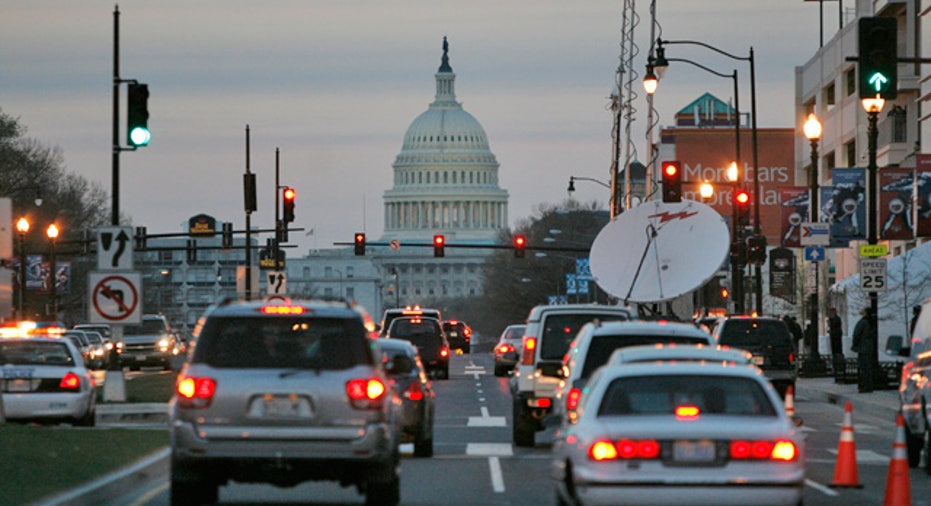Why Washington Is Wrong on Free Trade, Job Creation

Some say that globalization is responsible for a long-term decline of the U.S. manufacturing sector and the loss of 5 million factory jobs since 2000. Others claim that productivity is the culprit. Then there are those who pin it all on technology and automation.
I’ve read the studies and listened to the arguments and reached an interesting conclusion: None of that matters. This is one of those times when the problems are self-evident and so are the solutions. All the debate is purely academic, so let’s leave that to the economists and get down to business.
Free trade and job creation are not mutually exclusive. With the right leadership and policies in Washington, we can accomplish both.
First, the notion that offshoring has nothing to do with the loss of manufacturing jobs is ludicrous. I hear people say that and I just can’t believe the words are actually coming out of their mouths. This isn’t complicated, folks. The jobs are either here or they’re there. It’s better off for us if they’re here.
We used to make a big fuss over Toyota making cars in America. There was a time when we closely monitored the percentage of automotive and appliance components that were made here. Suddenly, it doesn’t matter if Ford makes their small cars in Mexico. That doesn’t make a whole lot of sense.
Of course it matters. To American workers, it matters.
Some pundits say we need to change our skillsets. That’s true, but that doesn’t happen overnight. What about in the meantime? Besides, some people are simply better suited to work with their hands. That’s not just what they’re good at; it’s what they like to do. You know, “life, liberty and the pursuit of happiness” and all that.
Likewise, our trade imbalance has grown substantially in recent years. That tells us something. We’d be better off exporting more than aircraft and intellectual property and actually making what we design in America, in America. But that doesn’t mean we should throw the baby out with the bathwater.
Open markets are good, and not just because FedEx CEO Fred Smith says so. Free trade leads to increased demand, growth and prosperity, but only if everyone plays by the same rules. Today, that’s not the case. Currency manipulation is a huge problem. We know who the culprits are. We need to come down hard on China. We need tough negotiators and an administration that holds other nations accountable when they cross the line.
At the same time, we actually have a federal government that creates friction for onshore job creation. That’s so ironic it isn’t funny. American companies don’t outsource manufacturing to Asia, have trillions of dollars stashed away offshore and do tax inversion deals for no reason. They do it because corporate tax and regulatory policy incentivizes them to do it.
Think about it. If the economics were different, every American company would prefer to have the bulk of their operations here. It’s good for productivity, efficiency, PR and employee morale. States provide tax and regulatory incentives to attract businesses, but the federal government does the opposite. That’s idiotic.
Take Apple, for example. The tech giant’s offshore subcontractors employ hundreds of thousands of workers, but the world’s biggest company by market capitalization only directly employs fewer than 70,000 full-time workers in the U.S.
Meanwhile, the iPhone maker has almost $200 billion parked offshore – capital it would love to repatriate at a reasonable tax rate. And with added incentives to build factories here, I am sure Tim Cook would go for it in a heartbeat. And I’ve no doubt that any decent CEO would do exactly the same thing.
It also doesn’t help that Obamacare disincentivizes small businesses to hire full-time workers. The law of unintended consequences just loves bureaucrats.
Continuing breakthroughs in automation, robotics and machine learning will continue to tilt the landscape in favor of skilled versus unskilled labor. That’s a fact of life. Just as we don’t want to be protectionists, we don’t want to be Luddites either. The problem is that our educational system has not kept up with the times. In some ways, I think we’ve actually gone backwards.
Washington’s meddling in the school system, the spiraling cost of college tuition and the $1.3 trillion student debt crisis have proved one thing: administrative bureaucracy and education don’t belong together. We need to get the federal government out of our schools and burst the bloated budgets of college administrations and tenured faculty. The answer is to deregulate education and allow schools to compete in the free market.
Lastly, we have another fact of life: The internet economy does not spread the wealth or favor employment. Google and Facebook may have huge valuations, but they’re software companies, which means they don’t make products. They’re also cloud-centric. And if you ever walk down the long lonely halls of an enormous data center, you’re not likely to bump into very many people.
Then again, Amazon employees 268,000. IBM has 377,000 people. Software may be eating the world, but technology still employs lots and lots of people.
Mostly this comes down to understanding how business works and common sense. Unfortunately, those skillsets are in very short supply in Washington. That’s what needs to change.



















